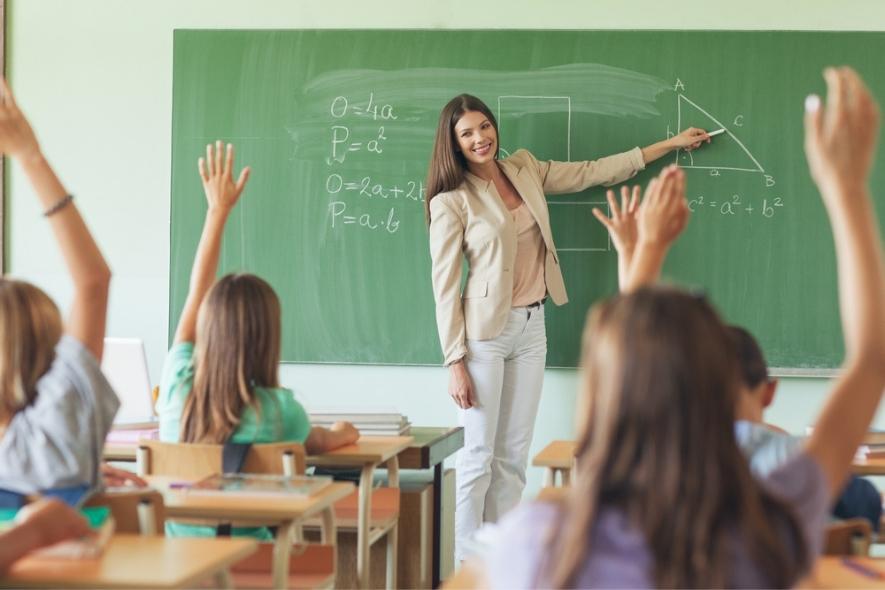Accelerate Learning with Primary Science Tuition Singapore for Young Minds
Accelerate Learning with Primary Science Tuition Singapore for Young Minds
Blog Article
Exploring the Different Teaching Techniques in Key Science Education And Learning Today
Inquiry-based discovering, hands-on experiments, and the assimilation of technology are redefining just how instructors engage young minds. Furthermore, collaborative techniques and separated guideline are being employed to cater to the diverse demands of trainees, boosting both interaction and understanding.
Inquiry-Based Knowing
Inquiry-Based Knowing (IBL) is a pedagogical technique that motivates pupils to discover clinical principles via doubting, examination, and hands-on trial and error. This method emphasizes the function of trainees as energetic participants in their discovering, advertising essential thinking and problem-solving abilities. By engaging with real-world concerns, pupils become interested and determined, which boosts their understanding of clinical principles.
In IBL, instructors function as facilitators, assisting pupils as they browse their inquiries rather than providing info straight. This student-centered approach permits distinction, accommodating various learning designs and paces. Students establish abilities in creating theories, making experiments, and analyzing information, which are essential for scientific proficiency.
Furthermore, IBL fosters partnership among trainees, urging them to share searchings for and concepts. This cumulative query promotes social abilities and a sense of area within the class. Moreover, the procedure of inquiry encourages strength, as trainees learn to accept failure as a tipping stone toward understanding.
Hands-On Experiments
Hands-on experiments are an important element of efficient science education and learning, matching the concepts of inquiry-based understanding. These experiments permit students to involve directly with scientific ideas, cultivating a deeper understanding with experiential knowing. By manipulating products and observing outcomes, young learners can comprehend abstract concepts in substantial methods.
Such activities advertise important reasoning and problem-solving skills, as trainees assume outcomes, conduct experiments, and assess results. This procedure urges them to ask inquiries, improve their understanding, and create a clinical way of thinking. Moreover, hands-on experiments can be customized to varied discovering styles, ensuring that all pupils have the chance to engage meaningfully with the web content.
Additionally, hands-on experiments commonly encourage collaboration among peers, promoting teamwork and interaction abilities. Operating in teams enables students to share ideas, review searchings for, and find out from each other, which boosts their total academic experience.
Including hands-on experiments right into the primary science curriculum not only improves the finding out environment but likewise grows a lifelong rate of interest in science. By proactively participating in their education, trainees are more probable to establish a passion for clinical questions that expands past the classroom.

Innovation Integration
Integrating technology into primary science education and learning has actually ended up being progressively important in promoting pupil interaction and boosting discovering outcomes. The usage of electronic devices, such as interactive simulations, virtual laboratories, and educational software program, offers students with possibilities to check out scientific concepts in cutting-edge means. These resources assist in a much deeper understanding of complicated subjects by enabling learners to picture and adjust variables that would be impractical in a standard class setting.
Moreover, technology assimilation urges personalized discovering experiences. Students you can try this out can progress at their own speed, her response reviewing challenging ideas through multimedia sources, which deal with different discovering styles. This adaptability not just supports private growth yet likewise cultivates a sense of freedom in students.
Additionally, innovation offers as a bridge to real-world science, linking trainees with existing research and expert payments. Accessibility to scientific journals and online data sources expands students' perspectives on clinical questions and cultivates vital thinking abilities.
Collaborative Discovering
Joint knowing plays a crucial function in primary scientific research education by fostering synergy and communication skills amongst pupils. This strategy urges students to work together, share understanding, and participate in analytic, which boosts their understanding of scientific concepts. By taking part in team tasks, pupils discover to articulate their concepts, listen to varied perspectives, and negotiate services, all of which are essential skills in both academic and real-world contexts.

Research suggests that joint learning can cause increased motivation and interaction in scientific research topics, as pupils discover enjoyment in shared experiences (primary science tuition Singapore). Furthermore, this technique prepares students for future joint undertakings, equipping them with the abilities essential for efficient synergy in college and professional environments. Eventually, embracing joint understanding in key scientific research education can dramatically improve the understanding experience and promote a deeper understanding of clinical inquiry
Distinguished Instruction

Differentiated instruction can materialize in numerous ways, such as differing the web content, procedures, or items of learning. For instance, educators might use tiered jobs that provide varying levels of intricacy, allowing students to work at their respective readiness degrees. Additionally, adaptable organizing approaches can assist in cooperation among trainees with various capacities, fostering peer learning.
Analysis plays an important role in this technique, as it informs guideline and helps teachers understand each student's unique needs. Formative evaluations, such as monitorings and tests, can guide educators in readjusting their methods to enhance learning results. primary science tuition Singapore. Inevitably, by implementing differentiated guideline in key science education, educators can cultivate an extra official website fair and effective learning setting, encouraging all trainees to reach their full possibility in understanding clinical sensations
Conclusion
In recap, the varied mentor strategies in key science education, consisting of inquiry-based discovering, hands-on experiments, technology combination, collective discovering, and separated direction, jointly add to a much more efficient understanding environment. These techniques promote essential thinking, analytical abilities, and a deeper understanding of scientific concepts. By executing these approaches, instructors can develop appealing and helpful classrooms that deal with the different needs of pupils, eventually cultivating a lifelong passion in scientific research and boosting scholastic accomplishment.
Inquiry-Based Knowing (IBL) is a pedagogical approach that encourages pupils to check out scientific ideas with doubting, investigation, and hands-on trial and error.Joint understanding plays an essential role in primary science education by promoting synergy and interaction skills amongst pupils.Research indicates that collective discovering can lead to boosted inspiration and engagement in science topics, as pupils find pleasure in common experiences.In promoting a comprehensive discovering setting, set apart instruction emerges as a vital strategy to suit the diverse needs and abilities of trainees in primary science education and learning. Eventually, by implementing separated instruction in primary scientific research education, educators can grow a much more fair and reliable learning atmosphere, equipping all pupils to reach their full capacity in understanding clinical phenomena.
Report this page